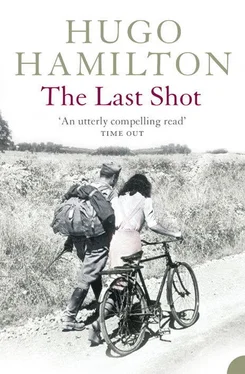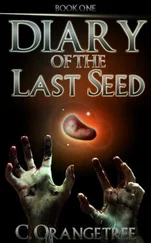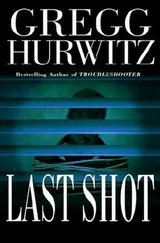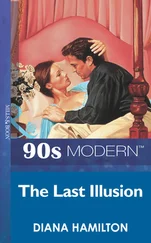Inside, at a desk behind a glass cage, sat a porter. Why they put him behind glass was difficult to understand. He came out to speak to me and understood enough German to make out that I was not just lost or nosy. The idea of a tourist in Louny defies logic. I made it clear that I had a purpose. He called various people out of their offices to come and look at me. Perhaps it was a stroke of luck that the head of the Communist Party at Louny happened to walk in right then, a man with bushy eyebrows, in the mould of Brezhnev, with a soft spot for the subject of resistance. Within minutes, the whole party apparatus swung into action.
I was taken upstairs and given tea. A network of historians were contacted by phone. They sent for the best expert on the resistance movement in the region of Louny: Mrs Marie Sekalova. But as she didn’t speak German or English, they had to send for the town archivist, Dr Milan Houdek, who could speak thirteen languages.
An hour later, I was walking back up to the town square in the company of Mrs Sekalova and Dr Houdek, followed into the archives building by the eyes of local people. Mrs Sekalova was a small, intense woman. She had brought some books and magazines with her. We sat around a map of the region, which I had spread out on a coffee table in Dr Houdek’s office. Mrs Sekalova began to re-enact the liberation of Czechoslovakia from the fascists. Milan Houdek translated.
I made a small X mark on the map near Hriskov. Another X at Postelberg, now called Postoloptry, where the Czech hostages were released. Mrs Sekalova showed pride and pleasure at the task of digging out these forgotten facts. Then I discovered why she was so pleased. She had met Jaroslav Sussmerlich in person: the leader of the National Committee at Louny. And her own father had been among the resistance fighters around Hriskov. She had spoken to many of the people involved and had personally recorded eye-witness accounts. I asked her if she would mind telling me how old she was in 1945, when all this happened. She was four. She remembered standing on the square with her mother, watching the German troops pulling out. The facts were close to her heart.
The facts were as follows:
6 May: Early morning, six trucks left the German garrison for Hriskov, where fighting took place from early afternoon until noon of the 7th, when the Germans repossessed the arms dump. The number of dead found on the 8th were thirteen Czechs and sixteen Germans. The injured casualties on both sides were taken to the Louny Gymnasium, where they lay side by side, treated by Czech doctors. The arms dump itself was found abandoned.
8th May: The German Army left Louny at 7 a.m. in the direction of Postoloptry, where they released all hostages. Twelve hours later, the first Russian troops rolled into Louny, at 7.15 p.m. At 8 p.m. the same day, German soldiers (presumed to be those returning from Hriskov) were engaged by the Russians at Clumchany on the outskirts of Louny, where the last exchange of fire was recorded in the region.
In Prague, the shooting continued into 9 May, with bands of SS men disregarding the ceasefire from midnight of the 8th. German planes continued to bomb a number of towns in north Bohemia on the 10th.
The last bastion of the Reich in the west was the North Sea island fortress of Heligoland, which surrendered to the British Navy on the 11th. The last battle on Czech soil was fought near Příbram, where the SS units fleeing from Prague were hoping to surrender to the Americans but ran into the Russians instead. The final exchanges in Czechoslovakia were recorded at Příbram on 11 May. A monument stands there to mark the end of fighting. The last German Wehrmacht units under arms are believed to have surrendered at the Yugoslav town of Slovenski Gradek on 15 May.
I was still looking for the last shot.
Mrs Sekalova had trawled through her material and we called it a day. Outside in the square, the loudspeakers had begun to resound like a curfew. Dr Houdek promised to send on any further information by post. We began to move towards the door.
The only thing I still had to see before I left Louny was the church. The St Nicholas church. It was famous for something or other, I asked? Dr Houdek confirmed that it was famous for its wooden altar carving.
The three of us walked across the square in the direction of the church. The loudspeakers fell silent. The square was empty except for the statue of Johann Huss. Dr Houdek began to speak more openly when he got outside. He seemed to have no fear while he spoke in English. Nobody in Louny could guess what he was saying and it became like a secret language almost. He had learned English from books and tapes; from the Beatles, and John Lennon. He spoke out as though he wanted to show me how free he really was.
Mrs Sekalova walked silently beside us. She smiled every time our eyes met. She was greeted courteously by other people passing by. It became clear how important she was in the town; a woman of great standing.
We climbed the steps of the church. Dr Houdek went ahead and opened the big oak door. I held the door open for Mrs Sekalova who had not come all the way up the steps yet. I noticed a reluctance, as though she wanted to go home. Perhaps she had work to do; children, dinner, to think of.
Seeing that I was still holding the door for her, she came up and entered the church. Dr Houdek had already gone to talk to the priest, who came back with him, switching on every light in the church in order to illuminate the great carving. It was a source of local pride, Dr Houdek explained, even though the carving was somewhat out of place and more appropriate in a larger architectural setting. Once more, Dr Houdek displayed the freedom of his critical faculties in a language that nobody in Louny could grasp.
Mrs Sekalova had withdrawn into the background. She had hardly even come into the church properly and I took it she was becoming more and more anxious to get back to her own duties. She lingered at the door.
The priest came over and whispered to Dr Houdek before he went around switching the lights off again.
‘The priest does not like Mrs Sekalova to be here,’ Dr Houdek said to me quite openly. ‘Mrs Sekalova is a big communist. The church does not like the communists.’
I turned around and saw that Mrs Sekalova was gone.
‘They have asked me to be a communist too,’ he went on, nodding towards the door. ‘I refused. I don’t like the communists either. They keep asking me to join the party, otherwise I will not be able to keep my job in the archives. I think they are going to make things difficult for me.’
The priest had plunged the church into gloom. Only the light left on the altar fell on the rows of benches.
‘I have a good job here. But now I think I will lose my job because I will not be a communist.’
Outside, Mrs Sekalova stood at the bottom of the steps, waiting. I was glad she hadn’t rushed off. We shook hands. She said something in Czech that I could not understand. All I could do was to answer in English. But then Dr Houdek translated. Mrs Sekalova wished to invite me back to Louny for the big celebrations in May the following year.
Dr Houdek walked with me back to the bus station. We passed his house on the main street of Louny, Leninova 95. It used to be called Prag Strasse. He said he would write to confirm the facts.
It was late when I got back to Prague that night. Too late to have a drink. The hotels were full of East Germans fleeing to the West. When I arrived back at my own hotel, the Intercontinental, I noticed that the large vertical neon sign was missing the R and the C. The Soviet Union was cracking up.
I sent some postcards while I was there. As usual, I wrote the same thing on each, hoping the recipients wouldn’t run into one another. I had bought six postcards showing the magnificent interior of the Klementa Gottwalda museum, draped with red flags and dripping in chandeliers.
Читать дальше
Конец ознакомительного отрывка
Купить книгу












